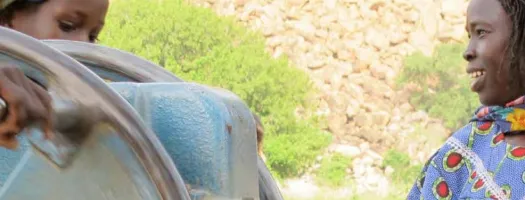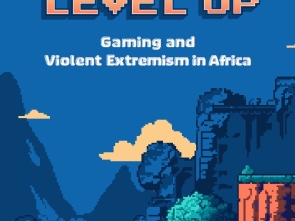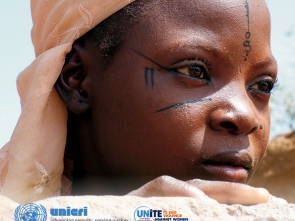The United Nations Interregional Crime and Justice Research Institute (UNICRI) and the United Nations Office for West Africa and the Sahel (UNOWAS) organized a two-day virtual Expert Workshop from 13 to 14 June 2023. The workshop aimed to delve into the complexities of climate security policies with a gender-inclusive focus, particularly in the context of violent extremism in West Africa and the Sahel.
The workshop saw the active participation from over 30 individuals, primarily representing civil society organizations operating in the region. Attendees included representatives from national authorities, gender and climate experts, practitioners, and representatives from a diverse range of organizations.
During his opening remarks, Leif Villadsen, Deputy Director of UNICRI, emphasized the significance of the workshop, stating, "Our hope is that the discussions and insights generated here will contribute to the development of practical training materials to help national authorities and civil society organizations promote climate- and gender-sensitive strategies to prevent violent extremism (PVE)."
UNOWAS echoed this sentiment, stating, "Today is a real opportunity to share experiences, enhance our partnership and strengthen our collaboration. UNOWAS and UNICRI will continue to support the agenda on climate peace and security."
The workshop centered on the interconnectedness of gender, climate change, and violent extremism, with a specific focus on gender perspectives. The diverse range of participants, especially the robust involvement of local civil society organizations, brought forth a multitude of perspectives, enriching the discussion and deepening the comprehension of the complex and unique factors that intertwine climate, gender and conflict vulnerabilities. Through the sharing of experiences, good practices, and case studies, the aim was to gather insights to inform the development of a comprehensive training package for national authorities and civil society organizations in the Sahel region, focusing on climate and gender-sensitive PVE policies.
UNICRI and UNOWAS, together with all participants, reiterated their unwavering commitment to the development and implementation of climate security policies that place a significant emphasis on inclusivity and gender considerations. This commitment aligns with the recommendations stemming from recent UNICRI research, which underlines the imperative of adopting a gender approach to address security risks associated with the climate crisis. A key highlight of the workshop was the roundtable discussion centered on good practices in climate security, gender, and the prevention of violent extremism. During this session, participants shared valuable insights from their respective work, shedding light on the challenges they face, and offering practical guidance for others seeking to integrate climate and gender perspectives into their programming.
The event concluded with a clear direction for future action and cooperation, with a primary focus on the development of a comprehensive training package aimed at fostering gender-inclusive climate security policies in the Sahel region.
UNICRI and UNOWAS express their gratitude to all attendees for their active engagement and valuable contributions. It is through these meaningful exchanges that we continue to deepen our knowledge, broaden our perspectives, and build effective strategies to address the complex interplay and challenges of climate change, gender inequality, and violent extremism.
Keep an eye out for upcoming activities and opportunities to join this initiative. Together, we can make a difference.



